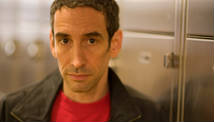Lance Armstrong over the years
Lance Armstrong over the years
Lance Armstrong over the years
Lance Armstrong over the years
Lance Armstrong over the years
Lance Armstrong over the years
Lance Armstrong over the years
Lance Armstrong over the years
Lance Armstrong over the years
Lance Armstrong over the years
Lance Armstrong over the years
Lance Armstrong over the years
Lance Armstrong over the years
Lance Armstrong over the years
Lance Armstrong over the years
Lance Armstrong over the years
Lance Armstrong over the years
Lance Armstrong over the years
Lance Armstrong over the years
Lance Armstrong over the years
Lance Armstrong over the years
Lance Armstrong over the years
Lance Armstrong over the years
Lance Armstrong over the years
Lance Armstrong over the years
Lance Armstrong over the years
<<
<
1
2
3
4
5
6
7
8
9
10
11
12
13
14
15
16
17
18
19
20
21
22
23
24
25
26
>
>>
STORY HIGHLIGHTS
- Mike Downey: I haven't a smidgen of sympathy for the dope "pedaler"
- Randy Cohen: If many cycling fans are right, most of the top riders engaged in doping
- Jeff Pearlman: Lance racing again is not truly an option anyway -- he's almost 42
- John Hoberman: Any lifting of his lifetime ban should be based on his total cooperation
(CNN) -- CNN asked for views on whether disgraced cyclist Lance Armstrong deserves another chance in light of his apologies to his charity, Livestrong, and his soon-to-be-aired interview with Oprah Winfrey, in which it's widely reported he admitted he used performance-enhancing drugs. Armstrong is banned from professional cycling for life and was stripped of his seven Tour de France titles.
Mike Downey: No sympathy for the dope "pedaler"
I was at the Champs-Elysees finish line on July 27, 1986, when the bike of Greg LeMond whizzed by, making him the first American to win the Tour de France. It was a monumental achievement: 210 cyclists, 23 grueling days, long and winding roads, treacherously steep hills.

Mike Downey
Equally hard had to be the abuse LeMond endured in retirement after publicly decrying the sport's hypocrisies and daring to suggest that seven-time winner Lance Armstrong, the All-American boy himself, had not been on the up-and-up. Vilified and disdained, LeMond was treated like a tobacco company's insider who blew the whistle on the industry's methods or like Carl Lewis speculating that his rival Ben Johnson had not won foot races fairly and squarely. As if he had an ax to grind.
I haven't a smidgen of sympathy for Armstrong now that he is exposed for the dope-pedaler -- that's pedal, not peddle -- he truly was. He played the Jean Valjean part of the persecuted man for every franc that it was worth. Let us resist the magnanimous gesture to forgive, forget and give Lance a second (eighth?) chance. He was caught, unlike certain baseball players who have been merely suspected or accused, and has, evidently, confessed. Seven strikes and you're out.
Professional athletes do exist who 'fess up, serve a suspension, then are welcomed back. They, as with the ballplayers, did disgrace their life's work, yet none single-handedly won their sport's championship with their chicanery. None stood apart as Armstrong did and hogged credit for being a champion, a hero. None won a championship by compelling teammates to also cheat, at risk of being shunned, smeared or dropped from the team.
I say we say goodbye for good to Monsieur Armstrong, farewell, adieu. Off to Elba and exile with you, you rogue. Vive LeMond.
Mike Downey is a former columnist for The Los Angeles Times and Chicago Tribune.
Randy Cohen: All big-time cyclists who doped should confess
The important ethical question isn't whether Lance deserves a second chance. Chance to do what? Cheat in seven more Tours? Lie about it seven more times? Bully seven more teammates into doping? He behaved badly and is rightly censured.
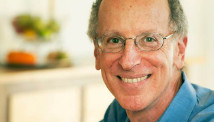
Randy Cohen
But that should be the beginning, not the end, of this disheartening story. There's a lot more blame to go around. Cycling's governing bodies also have an ethical duty, and that's to provide a setting in which honest athletes can participate.
If many cycling fans are right, most of the top riders engaged in doping. You simply can't compete against them without doing the same. What was Lance to do? Quit the sport? And who inherits his Tour titles? Some other cheat?
It would be thrilling if one by one, they declined in a Spartacus moment -- an honest, I-am-drugged-Spartacus moment. This is a community problem; it demands community solutions. Unless those who run big-time cycling institute real reforms, Lance's fall will be merely a celebrity scandal, and there's little good in that.
Randy Cohen wrote The Ethicist column in The New York Times Magazine till 2011, and he is a former writer for "Late Night With David Letterman." His latest book is "Be Good: How to Navigate the Ethics of Everything."
Jeff Pearlman: He's almost 42, forget about it
Back when I was 8 or 9, my parents took me to my first trip to Disney World. I remember Space Mountain, and I remember Mickey Mouse's enormous head. For some reason, though, what I remember most is a sign posted within the borders of Epcot. It read: If you can dream it, you can do it.
"Dad," I said, "I dream of being 8-feet tall. But that'll never happen ..."
"Well, son ..."

Jeff Pearlman
"And, Dad, I dream of being able to fly just like Superman. But that'll never happen ..."
"Son, the thing is ..."
"And Dad, I'd really like to win an Olympic gold medal for my Joanie Cunningham impersonation, but ..."
"Son," my father said, "It's a sign. It's just a damn sign."
Sigh.
Throughout Lance Armstrong's recent fight to prove he hadn't cheated, and throughout the plights of Barry Bonds and Roger Clemens and Mark McGwire and the alleged PED abuses of dozens upon dozens of others, I've often thought about that day at Disney and, specifically, of that sign.
As a boy, it spoke to me as a kid longing for greatness. Maybe, just maybe, I can accomplish anything. Maybe ...
As a sportswriter who has chronicled much of the past two decades, however, it strikes me as foolish nonsense. As Armstrong's recent admission shows, the words must be altered to -- if you can dream it, you can do it -- as long as you leave your ethics at the door and cheat your ass off and don't mind throwing your supporters under a bus.
That, now, is the sad, pathetic legacy of men such as Armstrong and Bonds. Once upon a time, they dreamed of doing wonderful things: Of hitting baseballs 500 miles; of speeding down the largest mountains; of being special. Then, however, they learned (as we all do) that we are bound by the confines of humanity. Within the rules and regulations, there is only so strong. There is only so fast. There is only so big. Hence, one can either accept his lot in life and put out the best possible effort, or he can cheat and lie and enjoy the temporary fruits while trying to avoid the inevitable plummet.
Do I think he should be allowed to race again? No. Lance Armstrong racing again is not truly an option anyway -- he's almost 42.
Just the same, I am thrilled that he has -- at long last -- begun to come clean. There are lessons to be learned here, beyond those pertaining to cycling. And day's end, when the cheering has stopped, there is something to be said for trying your best, even if your best doesn't result in triumph.
There is empowerment in knowing you gave your all. There is satisfaction in achieving your own PR. There is the sense of community and camaraderie that comes in the aftermath of a sporting event. Cold beers, casual conversation, sore muscles -- bliss.
Armstrong and Bonds forgot that long ago. For them, it was all -- and only --about winning. They got lost in a corrupt world of enhancers and boosters and had their heads turned by the fame and accolades and money.
Now, though, they are outcasts. They are the tombstones of long-ago dreams.
Jeff Pearlman is the author of "Sweetness: The Enigmatic Life of Walter Payton." He blogs at jeffpearlman.com. Follow him on Twitter.
Wayne Norman: Like a convenience store robbery that goes wrong
Lance knows that a quick mea culpa is not enough -- otherwise, he would have admitted to doping long ago. Instead, he made a calculated gamble that he could preserve his reputation and brand by lying, defrauding corporate sponsors, impugning the authorities pursuing him and actively slandering and suing honest whistle-blowers who stood in his way.
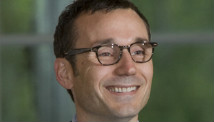
Wayne Norman
That bet has not paid off.
Like a convenience store robbery that goes wrong and leads to a hostage-taking and a high-speed chase, Lance's doping is by far the least of his transgressions. A highly calculated confession about the doping still looks like Lance gambling to advance his interests. Former fans will need contrition and a sense that he genuinely regrets the gamble. Those he slandered and defrauded should demand even more.
Lance cannot get another chance as an athlete at this point. That would make a mockery of all sporting rules and their enforcement. When you've been that blatantly dishonest, it won't be easy to convince people to trust you again.
Wayne Norman is the Mike & Ruth Mackowski professor of ethics at Duke University.
John Eustice: Armstrong can make a deal and get leeway
What Lance has, the U.S. Anti-Doping Agency wants, and Lance is not going to give it to them unless he gets his (athletic) life back. USADA knows that Lance stands at the nexus of two distinct cultures, two completely different mindsets: The ideals and dreams of Olympic sport and the harsh, ratings-driven business of the professional game.
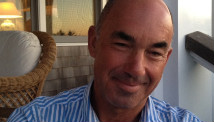
John Eustice
They view this conquest of Lance as their great chance to have the Olympic vision triumph over the cynicism of the pros. But they need his cooperation to win.
Despite the admitting of pros into the Olympic Games, in truth, the two cultures do not mesh. Pro sports are businesses where talent, ratings and the subsequent cash flows from them, must be protected just as in any other entertainment business.
USADA needs to understand how the professional mentality has "infected" the Olympic movement, and Lance is the key. Was he protected by the International Cycling Union? Was the Tour de France involved? Did it go even higher that that?
USADA makes deals. If Lance can provide them with information on the underground system that fuels athletes worldwide, and explain, for example, how of the 6,000 drugs tests given at the London Games, only one came back positive, allowing him to participate in some triathlons seems a very small price to pay.
Cycling analyst John Eustice was one of the pioneer Americans to break into the world of European pro cycling. He co-founded and captained the first American team to race in the Tour of Italy, and is a two-time United States Professional Champion.
John Hoberman: Is it possible to acquire a conscience overnight?
The report that Lance Armstrong choked up during his apology to Livestrong Foundation employees earlier this week would seem to mark an abrupt departure from the cold, calculating and manipulative personality he has displayed throughout his celebrated athletic career.
Having closely followed the Armstrong saga as a doping researcher, I have come to doubt whether this is man is capable of genuine contrition. One can only imagine the apologetic telephone calls he has been making to the former teammates and other victims he persecuted, threatened, bullied and slandered over so many years.
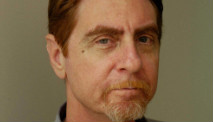
John Hoberman
Is it really possible to acquire a conscience overnight? Can a person who has long-demonstrated reckless self-assertion, a lack of empathy, coldheartedness, egocentricity, superficial charm and irresponsibility suddenly repent after months of hostile intransigence?
One is tempted to say no, since this ensemble of traits bears a disturbing similarity to the psychopathic personality. Let us hope that Armstrong is capable of leaving his old self behind and building a healthier personal identity.
Any lifting of his lifetime ban from officially recognized competitions should be made contingent on his absolute and total cooperation with the United States Anti-Doping Agency and the World Anti-Doping Agency. Armstrong must demonstrate some good faith by revealing everything he knows about the illicit trade in doping drugs as well as the cynical and opportunistic doctors who have profited from these corrupt arrangements.
John Hoberman teaches at the University of Texas at Austin and is the author of "Mortal Engines: The Science of Performance and the Dehumanization of Sport." He was a consultant in 2005 for the SCA Promotions of Dallas, the insurance company demanding that Lance Armstrong repay a total of $7.5 million it paid to him in Tour de France bonuses.
Shawn Klein: If he cooperates, maybe the lifetime ban could be reduced
After years of adamant denials and protestations of his innocence, Lance Armstrong has reportedly come forward to admit his use of prohibited performance enhancing drugs. If Armstrong is sincerely contrite and forthright in his apology, most people, including myself, will forgive him for his use of prohibited drugs.
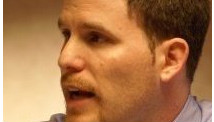
Shawn Klein
He cheated in a sport known for its widespread cheating; that doesn't justify his use but it does put his actions into an understandable context that makes it easier to excuse the use. Further, if Armstrong cooperates with the U.S. Anti-Doping Agency, his lifetime ban from cycling ought to be reduced to something more reasonable.
The more troubling aspects of the Armstrong case are the allegations that he harassed and intimidated team members and potential whistle-blowers. Violating the arbitrary rules of a sport shows a character flaw and poor judgment, but it is hard to see who else is truly harmed by such actions. But to threaten, intimidate and coerce others (either to use performance enhancing drugs themselves or to cover up his team's use) causes real harm.
Even if only some of these reports are accurate, Armstrong will have to do more than sit on Oprah's couch to earn forgiveness.
Shawn Klein teaches at the Department of Philosophy and Center for Ethics and Entrepreneurship at Rockford College in Illinois and writes the Sportsethicist blog.
What do you think? Comment below and join us on Friday for a live chat on Twitter @CNNOpinion about Lance Armstrong.
Follow @CNNOpinion on Twitter.
Join us at Facebook/CNNOpinion.
The opinions expressed in this commentary are solely those of the authors.











